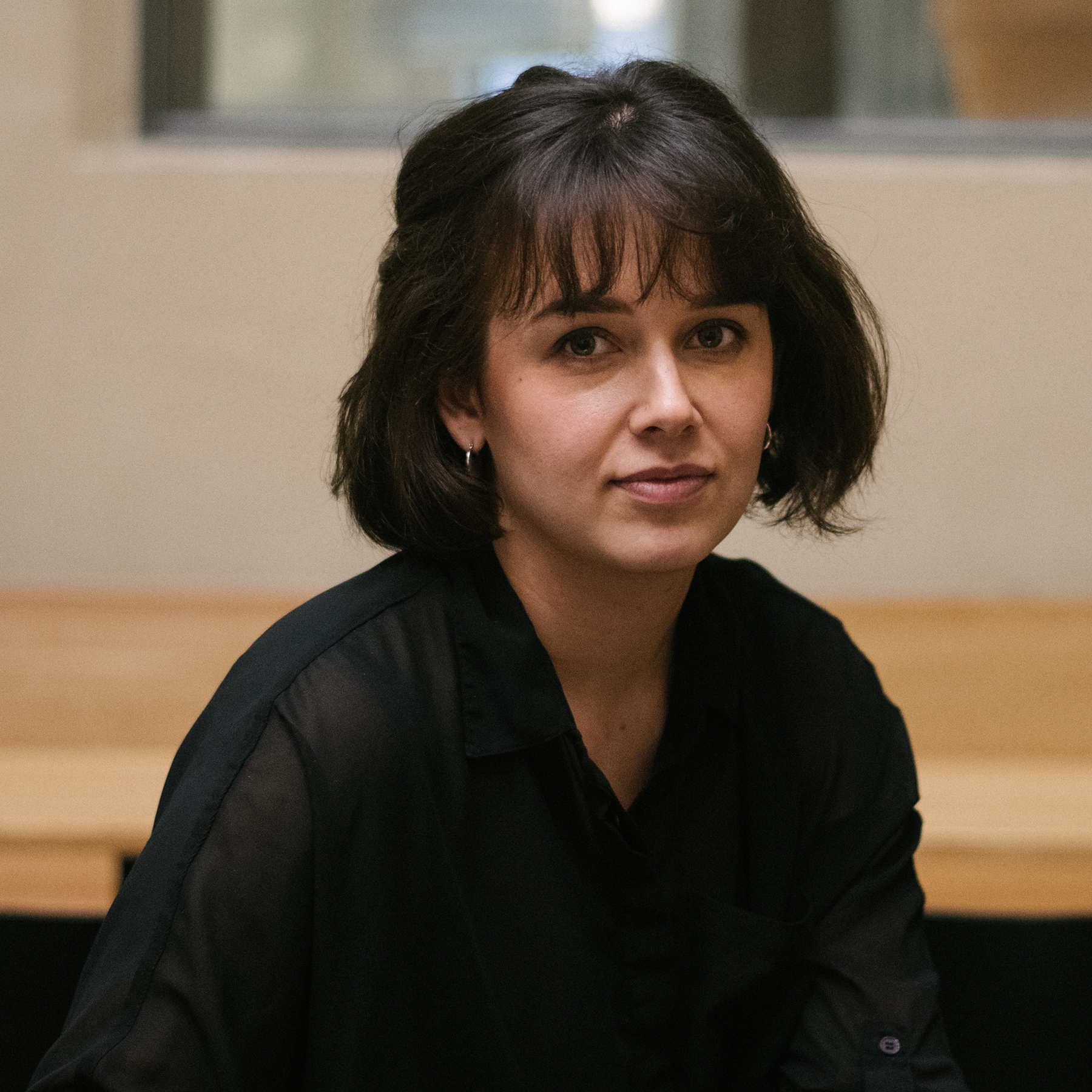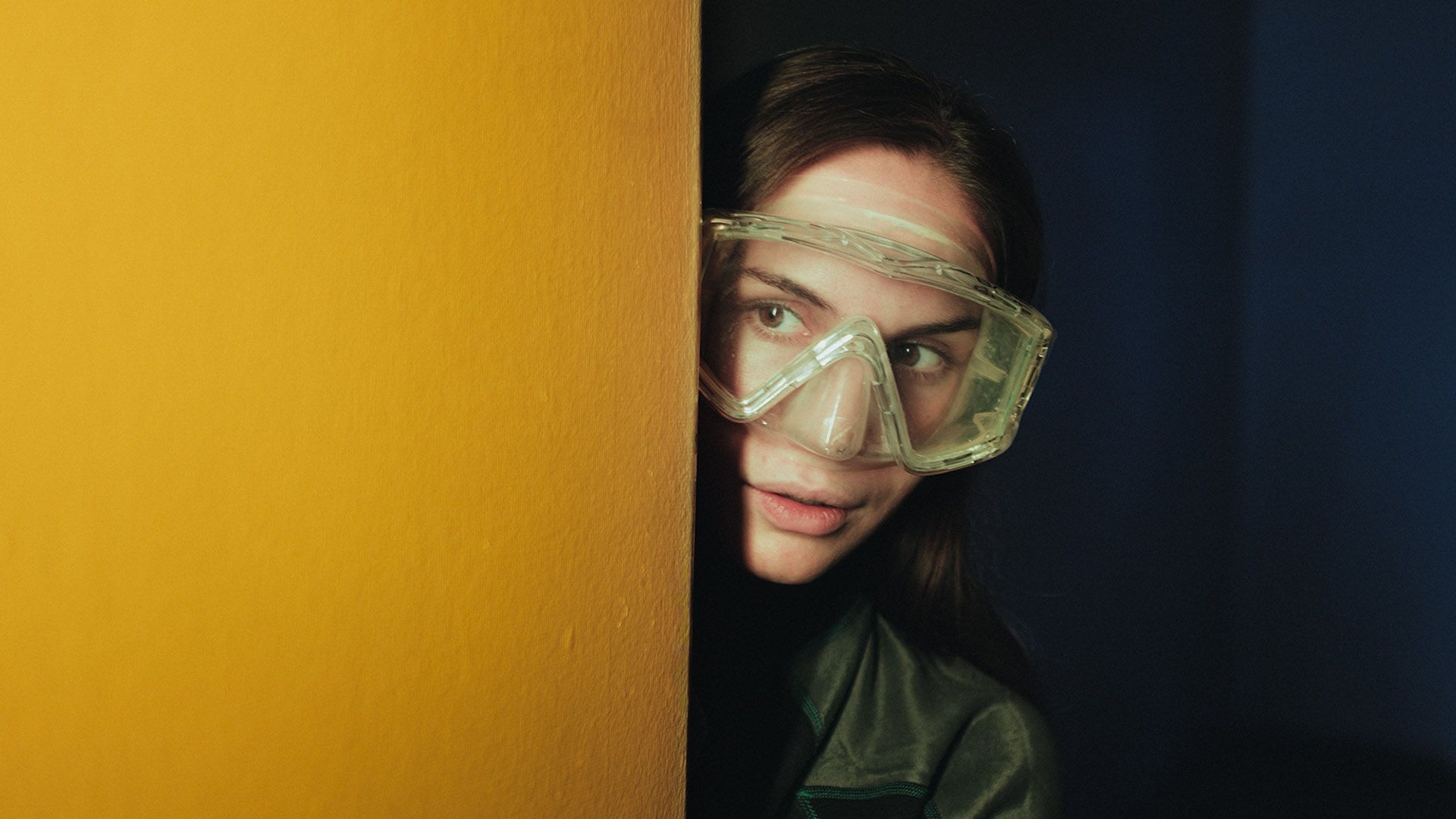Baltic Event Co-Production Market
The Well
A young woman starts to question what she knows about her family, her foster sister, and the nice people living under their garden well.
Emmi, 24, still lives at home, where her shy sister Iida, 17, has been fostered since she was a baby. Emmi has always taken good care of Iida, almost like an enthusiastic third parent in the family. In Emmi's own mind, she is the key element in making sure that Iida grows up as a normal adult despite her difficult past. At night, she reports their progress to Iida's biological parents, who live in an apartment under their garden well.
When Iida turns 18, the foster arrangements end. The sisters celebrate, but during the night Iida admits that she hasn't been totally happy in Emmi's family, and Emmi feels like she's failed. The parents in the well encourage Emmi to try harder, and to make sure Iida lives a normal youth. Emmi takes Iida to look for a boyfriend, but when unexpectedly Iida actually finds someone, Emmi is not prepared for being left behind. She tries to hold on to her sister and her own saviour role in peculiar ways, and Iida's boundaries are crossed.
As Iida's new drive for independence makes things more complex and disturbs Emmi's mission to stay in charge, she starts to question the true nature of things in her life. What if the parents in the well aren't as nice as they seem? It starts to look as if Emmi has been lying to herself about many things, and when her eyes are finally forced open, she needs to choose whether to accept the new reality that awaits.
Main country of production
Finland
Director's note
At the heart of 'The Well' lies a trauma from childhood, upon which the entire life of the main character, Emmi, has been built. When Emmi gained a younger sister, Iida, through a foster placement, she began to carry an exaggerated sense of responsibility for her. As an adult, this care has turned into control, preventing Emmi's own independence. 'The Well' depicts a distorted life attitude that can emerge when a child grows into a role they never chose. For Emmi, that role is caretaker – a role she cannot step out of, even when circumstances and needs have changed.
The unbalanced relationship between Emmi and her foster sister Iida is the emotional core of the film. Emmi refuses to see Iida as she truly is, instead pushing her through life's significant experiences in order to keep the situation unchanged. What looks like care is, in fact, control. In the middle of this unsustainable dynamic, however, Emmi and Iida still have each other; their shared world is rich and surprising, and seems to move along its own tracks. This creates an undercurrent of absurdity and humour in the film. The night-time moments in the well strengthen this playfulness, which ultimately takes on a new meaning when it becomes clear what it has been hiding.
Within the film, the well is both a tangible place and a metaphor for Emmi's mental landscape. The element of water is present in both reality and the fantasy world, shifting between layers of perception, building a mental landscape where memories, imagination, and the present become entangled.
The way the characters act and speak is slightly heightened, as if everyone were seriously playing a role assigned to them. It is difficult to find a direct stylistic equivalent for this level of expression. It does not go as far as in the works of Yorgos Lanthimos or Wes Anderson, yet it is related to them.
Visually, I want to show how precisely and uncompromisingly Emmi has constructed her world. Through framing, I hint to the viewer about a 'missing world' even before the story begins to reveal it. This creates, from the very start, a tension that makes the viewer look for clues and reasons behind Emmi's unusual way of existing. The rhythm of revelations is carefully measured, letting the world breathe before its foundations begin to shake. Only when the fantasy world Emmi has built around the well collapses can she face what it has concealed: Iida's arrival has also fractured Emmi's family.
Producer's note
Most of us have had a role in our families that continues to shape our current and future relationships. Even though foster siblinghood is a very specific relationship, I believe that 'The Well' can offer moments of revelation and comfort to many people who recognise the stressful dynamics of all kinds of blended families.
I think that 'The Well' can resonate with 20–30-year-old young adults who might identify with the outsiderness of Emmi and Iida, and for whom the themes of family, coming of age, loneliness and mental health can resonate in today's heavy-hearted world, especially when handled with heightened reality, warm humour and empathy. The film can also attract 30–40-year-olds who have already gained some distance from their childhood families, but are now looking back at their own past with new perspectives, perhaps as parents themselves.
'The Well' exists in the same emotional landscape as films like "Shoplifters," "Aftersun" and "All of Us Strangers," and I think that the curious, fantastical and peculiar world of the film, combined with a precise, humane observation, will stand out and interest independent cinema-goers.
Siiri Halko is one of the most promising new voices coming from Finland, and I am very happy to be the person to help bring out her ambitious and observant feature film and encourage the strong vision that is already there. With emotional sensitivity, intriguing oddness and a visually compelling surreal world, I believe we have a gem of a film in our hands.
Subjects:
surrealism, absurd, sibling relationships, humour, belonging, familial relationships, interpersonal relationships, loneliness, mental health

Siiri Halko (1996) is a Finnish writer-director and a graduate from the Aalto University Film Directing department. She has directed several short films, such as Overtime (2025) and Nesting (2021), which premiered at the prestigious Clermont-Ferrand International Competition and was nominated for the Finnish Academy Award for Best Short Film. She is now developing her first feature The Well with Silmu Films.

Jenni Jauri is the founder and producer of Silmu Films. Her recent credits include “Goodbye Words” (IFFR, Hot Docs 2023) and the Venice-winning “Paradise Is Burning” (Best Director, Orizzonti). A former Tuffi Films producer, she has over 15 years’ experience across film, music, and cultural projects. Jenni holds an MA in Film Producing from Aalto University, is an EAVE 2022 alumna, and joined the ACE Mentoring Programme and Filling the Gap in 2024.

